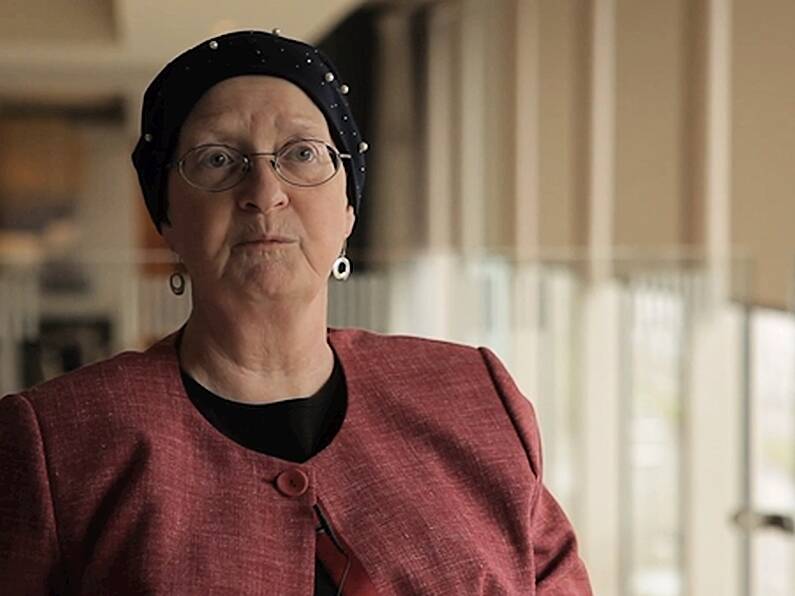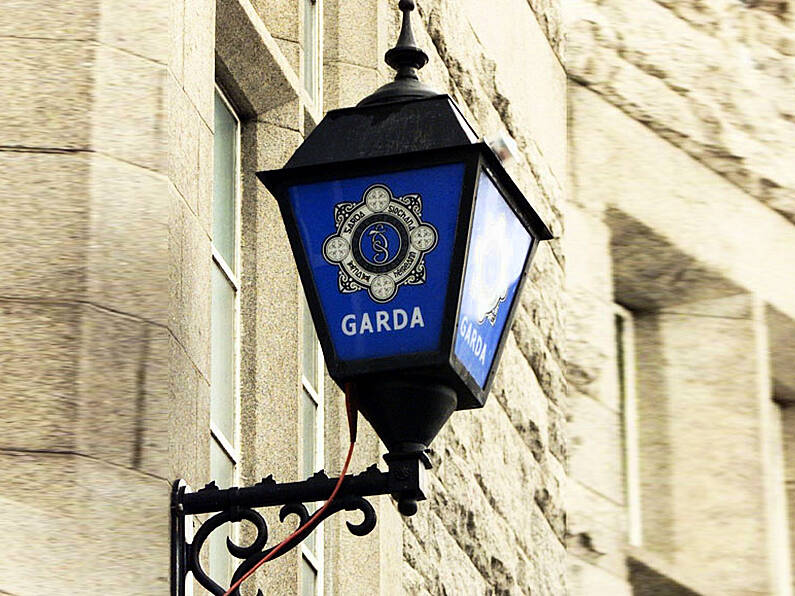An Irish woman who won a successful battle against the Dutch health system after she was left with terminal cervical cancer because of hospital negligence has vowed to fight until her "last breath" to put a no gagging clause policy in place right across the EU.
Adrienne Cullen, 58, who grew up in Limerick says that women like her and her counterparts Vicky Phelan and Emma Mhic Mathúna have had their lives stolen from them.
"They have been robbed of being able to see their children's birthdays. They have been robbed of Christmas photos, of having family holidays. Of seeing their children grow up. We have all lost so many things like that.
"Peter (her husband) beside me here is losing me. My career is lost and my sense of who I am has been radically changed."
Ms Cullen, who is being awarded a Honorary Doctorate in Laws at UCC today says that she is an "angry and motivated individual."
"I am determined until my last breath to make sure that people understand how you should treat patients and how to treat them when something goes wrong."
Adrienne has had four operations to remove five tumours and has also undergone radiotherapy and chemotherapy. Her cancer would have been treatable if she had been diagnosed when she first presented to hospital in 2011.
She wasn't diagnosed for a further two years because some of her results went missing. University Medical Centre Utrecht (UMCU) has admitted liability in the case but Adrienne received compensation of just €545,000.
She insists that gagging clauses must be banned because they are another injury inflicted on the patient following the traumatic news that their lives are set to end prematurely.
She also believes that gagging clauses continue to perpetuate a culture of silence which allows medical negligence cases to continue unchecked.
"We are handed over to the legal departments of hospitals like we are being thrown to the wolves. I will resist against that happening so no other patients are damaged in the future.
"What I have achieved in Utrecht isn't nothing but it is only the first step on a very long journey. It has to be Europe wide.
"There has to be an absolute ban in the EU on using confidentiality clauses which are gagging clauses in contracts between patients and their hospitals because they do not belong there. That would be a very good first step."
Meanwhile, her husband Peter Cluskey says that one of the problems with gagging clauses is that hospitals always tell impacted patients that they are "unique." Patients are often not aware that there is someone else in the same circumstance putting up the same fight for financial compensation and justice.
"There is ten other people or 100 other people in the same hospital in the same situation. You never get the support of numbers and that means there is never any change," he said.
Adrienne says of the few positives of the Cervical Check scandal in Ireland is that way that people have "clubbed together" to take on the system.
"There is huge support between the different patients and the very fact that they are a group and that they are united and they have people spearheading it. Well that is the right thing to do. Because not everybody can fight this fight on their own.
There was no way I wasn't going to stand up for myself.
Adrienne says since she went public with her story she has been contacted by people with similar heart rendering tales to tell.
"In each case they haven't been looked after at all. They have been cast aside. They have to be 'looked after' by the lawyers and that it is."
The vastly experienced journalist has written a book about her experiences which will be published next year. She says being acknowledged by UCC has provided her with a tremendous lift during dark times.
"It is hugely important to me. It took me totally by surprise. My old university was able to see the value of what I was doing. They could see clearly that I have achieved something that is worthwhile although it is something small.
"It is a huge contrast to everything I have been going through in the past five years which is people not understanding what I am doing or why am I doing it. Or people saying 'why don't you forget about that and go on holiday?'
"This honour from UCC humbles me because they really do understand. They get it."
Adrienne first underwent hospital tests in Holland after becoming ill in 2011. Doctors assured her she was healthy but some of her tests went missing.
In 2013, a review of old pathology results found that a test for cancerous tissue which Cullen’s doctor had conducted two years previously had, in fact, been positive. By 2015, tests showed it had spread.
Because of the delay, the cancer was now terminal.
Cullen convinced the hospital that they had not abided by any of the international norms for what is known as Open Disclosure After Serious Harm.
The Open Disclosure protocols that have since been put in place in UMCU are already being adopted by the country’s seven other teaching hospitals.
Adrienne refused to sign a gagging clause. She says she will never be silenced as long as her story can assist and prevent other people from suffering similar devastation.
She adds when she looks at the Irish women impacted by Cervical Check she is struck by how horrific it must be to be a parent with young children in situations similar to hers.
"The big difference between [Vicky Phelan and Emma Mhic Mathúna] and me is that I don't have children.
"The horror of being a parent is the idea that you have to leave your children behind you and not know what is going to happen to them. Or what education they will get. Or what guidance in to the future.
Money doesn't compensate them for losing their parents.






